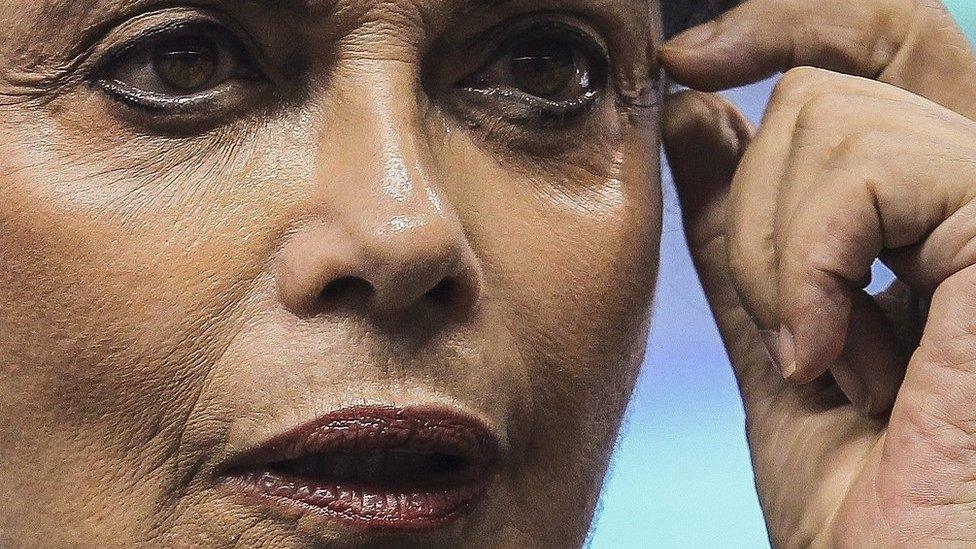Brazil's stock market plunges after corruption claims
- Published
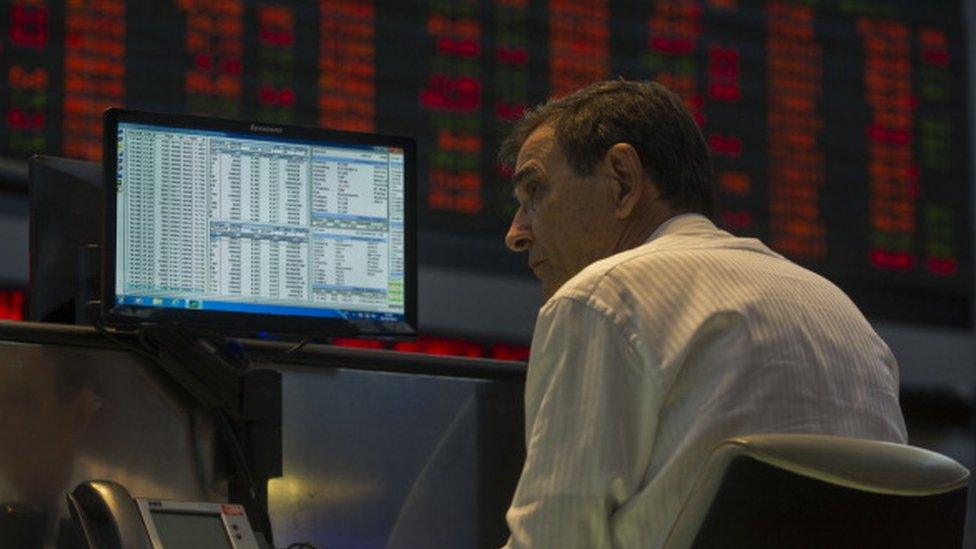
Brazil's Bovespa stock market was briefly halted as investors reacted to corruption allegations against Brazilian President Michel Temer.
Stocks plunged more than 10% at the start of trading, prompting circuit breakers to kick in and halt dealings.
President Temer was forced to deny a newspaper report that he had given consent to paying off a witness in a huge corruption scandal.
The Supreme Court has authorised an investigation into the allegations.
On Thursday Mr Temer said in a TV statement: "I never authorised any payments for someone to be silent. I did not buy anyone's silence. I fear no accusations."
"I have nothing to hide. I never authorised anyone to use my name"
"We cannot throw so much hard work [on reforms] done for our country in the rubbish bin."
"I will not resign. I will not resign. I know what I have done."
Investors are concerned that Mr Temer's reform plans could be derailed. The Ibovespa index closed more than 8.8% down at 61,575 points.
Mr Temer is trying to get pension reforms through Congress that would mean men would have a minimum retirement age of 65, and women 62, and most people would contribute more. There is currently no minimum retirement age.
There are also labour reforms on the cards to weaken trade union bargaining powers and make hiring and firing workers easier.

Optimism turns sour, by Daniel Gallas, BBC South America business correspondent
"I've never seen anything like this", said one trader with decades of experience.
Trading was delayed in Sao Paulo's stock exchange and once it opened, the circuit breaker stopped all operations within just a few minutes. That has not happened since the global financial crisis of 2008.
In a fortnight Mr Temer was about to start pushing his economic reform plan through Congress.
Until Tuesday markets were very optimistic - but now many don't see how Mr Temer can keep his job if the allegations about a tape in which he condones a bribe payment are true.
What happens next? If Mr Temer keeps his job, he will need a Herculean effort to get Congress behind him again. If not, the Brazilian Congress will have to chose a new president indirectly.
Getting reforms approved is no longer a top priority for a country still in deep crisis.

On Wednesday night, the O Globo newspaper reported that Mr Temer had been recorded discussing payments to silence former House Speaker Eduardo Cunha.
Mr Temer's office said he had never requested payments to Mr Cunha, and called for a full investigation into the allegations.
Two MPs have filed impeachment proceedings against the president.
And on Thursday senator Aecio Neves, an important ally also accused in the tape recording, was suspended from Congress and had his house raided by the police.
Hundreds of protesters gathered in Sao Paulo calling for the impeachment of President Michel Temer
Mr Cunha was jailed for 15 years in March for corruption, money laundering and tax evasion, as part of a major investigation dubbed Operation Car Wash.
The probe, launched in March 2014, centres on companies that were offered deals with state oil giant Petrobras in exchange for bribes, which were funnelled into politicians' pockets and political party slush funds.
Almost a third of Mr Temer's cabinet is under investigation for alleged corruption.
Mr Temer played a key role in the impeachment proceedings against his predecessor, President Dilma Rousseff, last year.
She was removed from office accused of illegally manipulating government accounts. She denies all the charges.
- Published19 May 2017
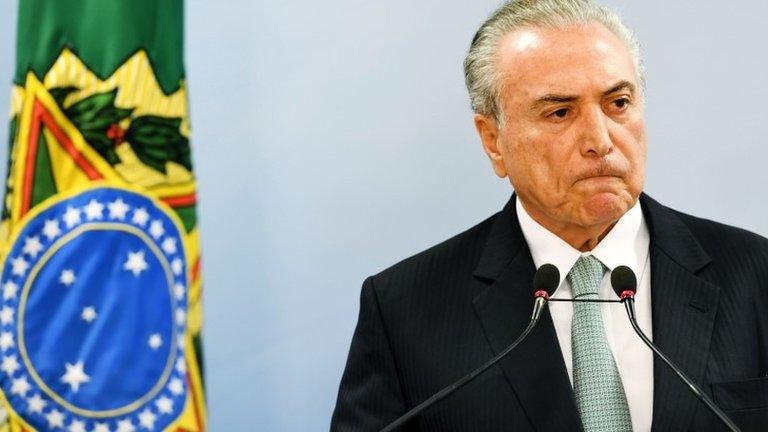
- Published18 May 2017
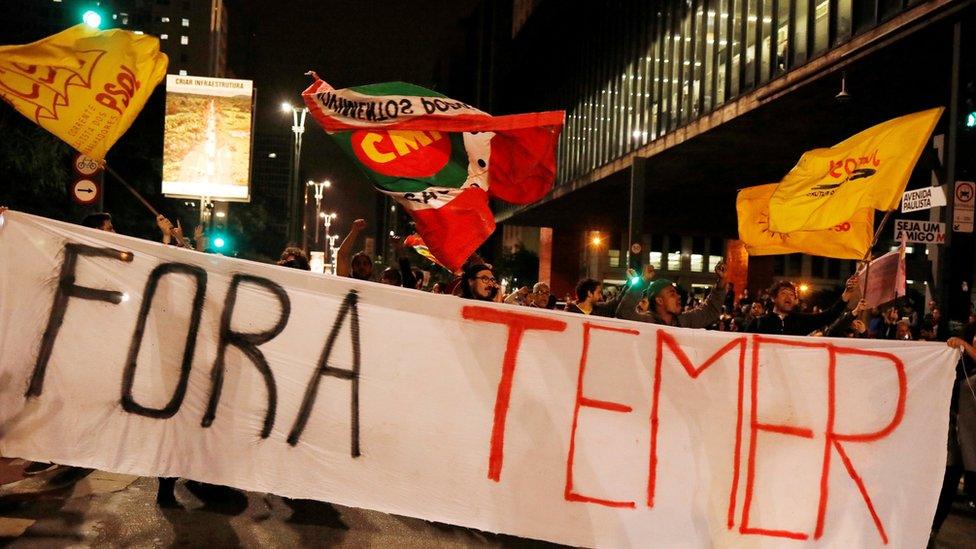
- Published12 May 2017
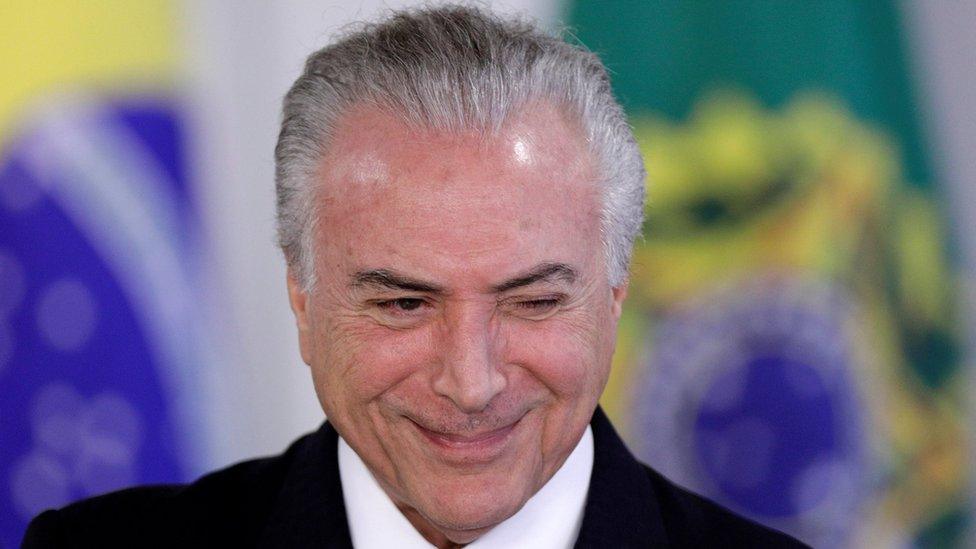
- Published11 May 2017
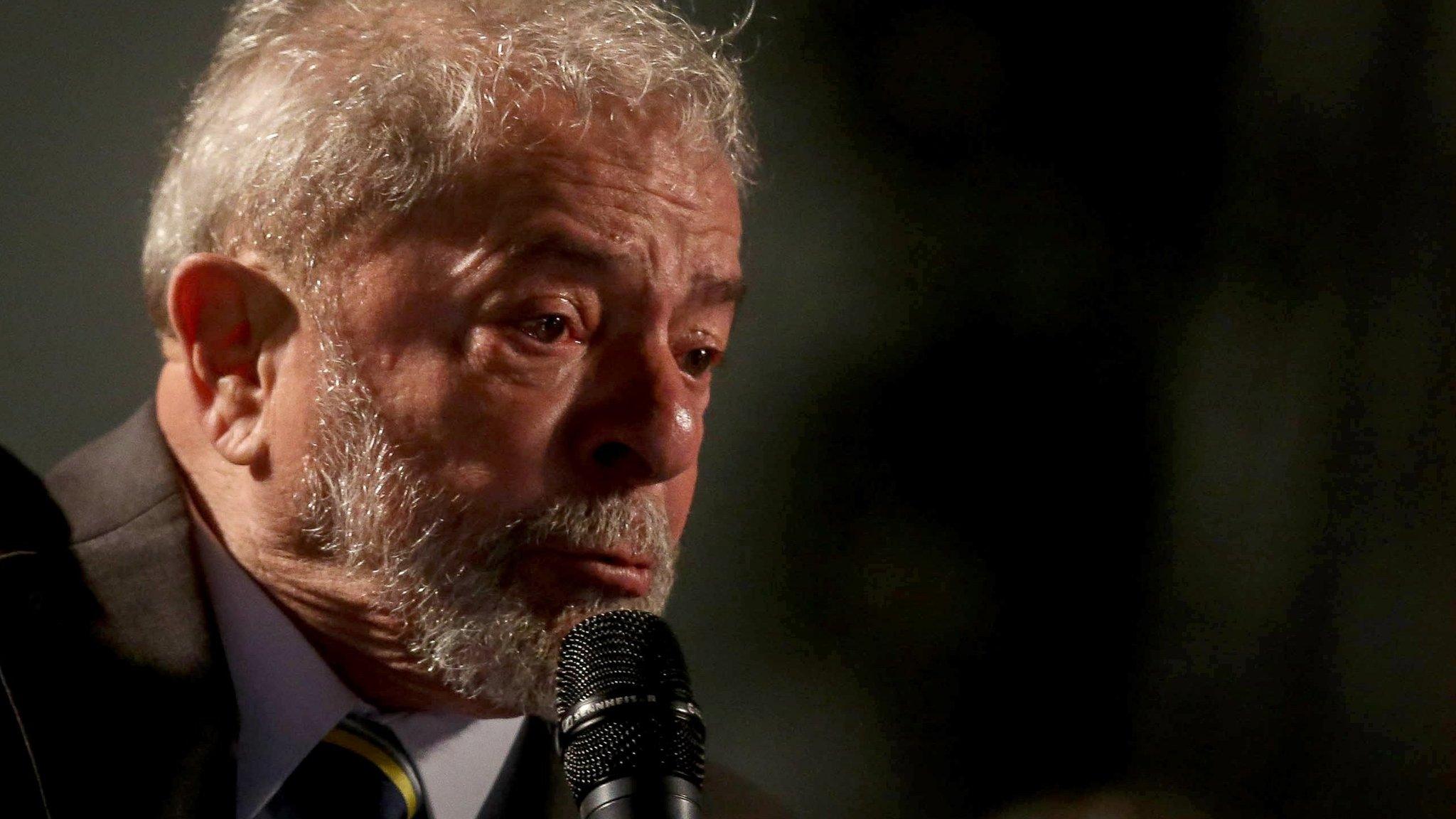
- Published12 April 2017
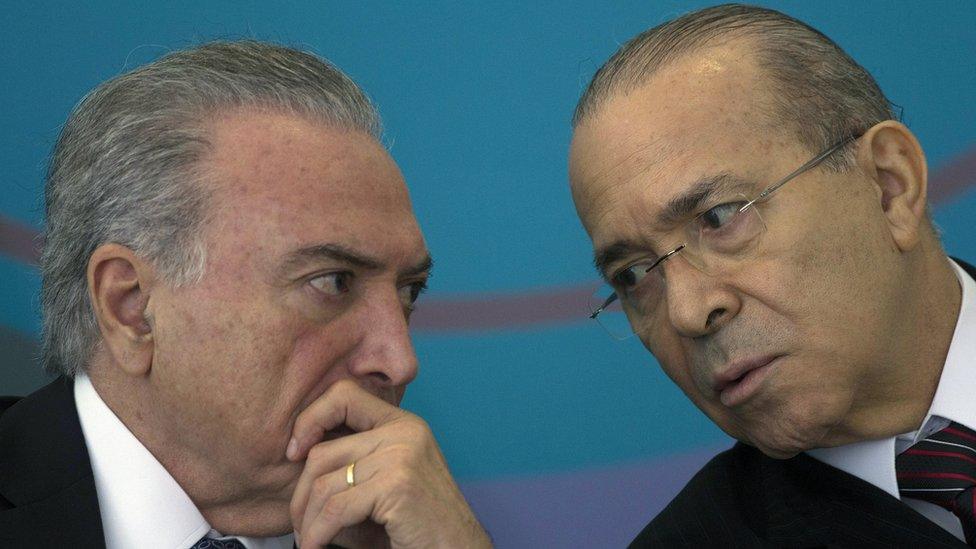
- Published12 May 2016
